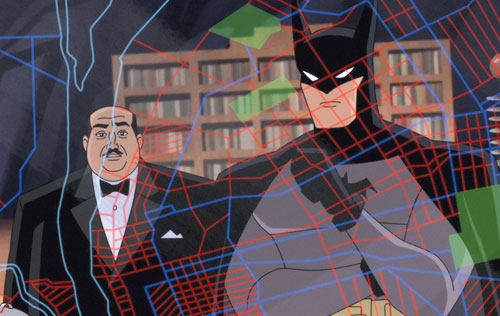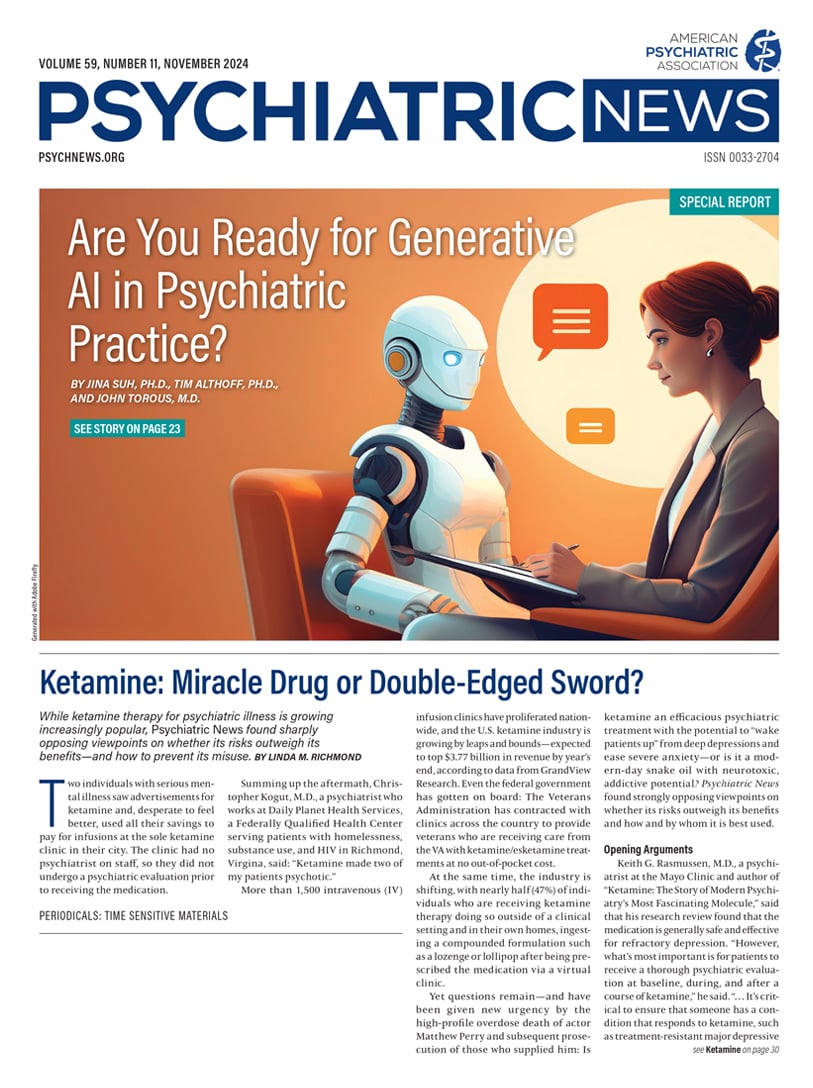Since Batman’s 1939 debut in the pages of Detective Comics #27, the character’s rogues gallery—a mash-up of Universal monsters and Warner Brothers gangsters epitomized by the Joker—has been synonymous with madness. Although the degree to which the villains’ motivations have been driven by clinical mental illness has varied since the post-war period, for the past 50 years, the majority of Batman’s villains have been explicitly depicted as “criminally insane.”
Most modern Batman films and television series perpetuate such outmoded portrayals of mental illness. But Amazon Prime’s “Batman: Caped Crusader” animated series treats mental illness differently.
Executive produced by Hollywood heavy hitters J.J. Abrams and Matt Reeves as well as Bat-legends Bruce Timm and Ed Brubaker, “Caped Crusader” is set in a retro-modern world anchored in 1939 but unburdened by the weight of the racism, sexism, and ableism that permeated contemporaneous American culture and was reflected in early Batman comics.
Sure, the show’s villains are still caricatures of DSM diagnoses—Catwoman is a kleptomaniac, Firefly a pyromaniac. But the explicit attempt to depict these and other classic DC Comics characters in a sympathetic light sets “Caped Crusader” apart from its Bat-brethren.
Not all villains are depicted as having a serious mental illness; the violence of Penguin, Clayface, and Onomatopoeia, for example, is instrumental in nature. But when mental illness does seem to be a factor in the alleged crime, progressive public defender Barbara Gordon (Commissioner Gordon’s daughter) attempts to refer criminal defendants like King Tut for psychiatric evaluation.
In the real world, such referrals are intended to assess competency to stand trial and criminal responsibility or to divert defendants from the justice system into treatment through specialty courts. Unfortunately for Ms. Gordon’s clients, these psychiatric evaluations are performed by none other than Dr. Harleen Quinzel, aka Batman villain Harley Quinn.
“Caped Crusader” also successfully portrays the victimization of people with mental illnesses. Firefly is manipulated by corrupt GCPD detectives to commit arson. Harley Quinn takes advantage of her patients by “brainwashing” them to do her bidding. And, while “Caped Crusader” disappointingly employs the tired “evil psychiatrist” trope, Dr. Quinzel’s motivations, though sadistic, are mitigated by a desire to force privileged male industrialists to face their misdeeds and redistribute their wealth.
Even the Caped Crusader himself ends up on the analyst’s couch. After assaulting a heckler, Batman’s alter ego, Bruce Wayne, is court-ordered into psychotherapy. His resistance to therapy echoes the real-life challenges of engaging men in treatment and shows that even heroes deal with mental health hurdles—in Batman’s case, the childhood trauma of witnessing his parents’ murder.
The season finale teases the Joker, a character who has become synonymous with insanity; the true test of the series’ treatment of mental health topics will be in how this character is handled in season two. Psychiatry should strive to collaborate with creatives to avoid potentially harmful mental health depictions.
Nonetheless, “Batman: Caped Crusader” should be praised for evolving how mental illness is portrayed in Gotham City—a place where it need not be the villain. ■


